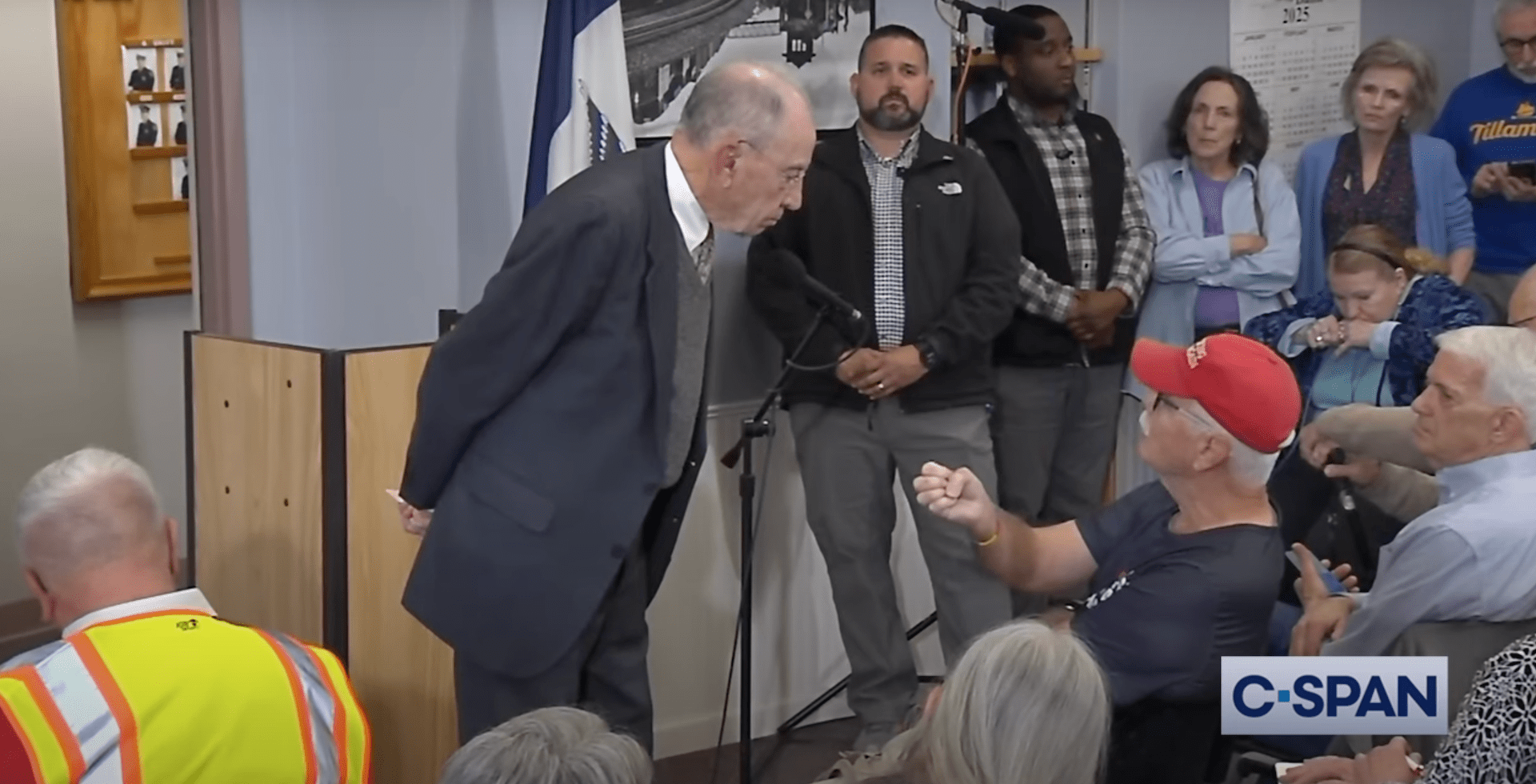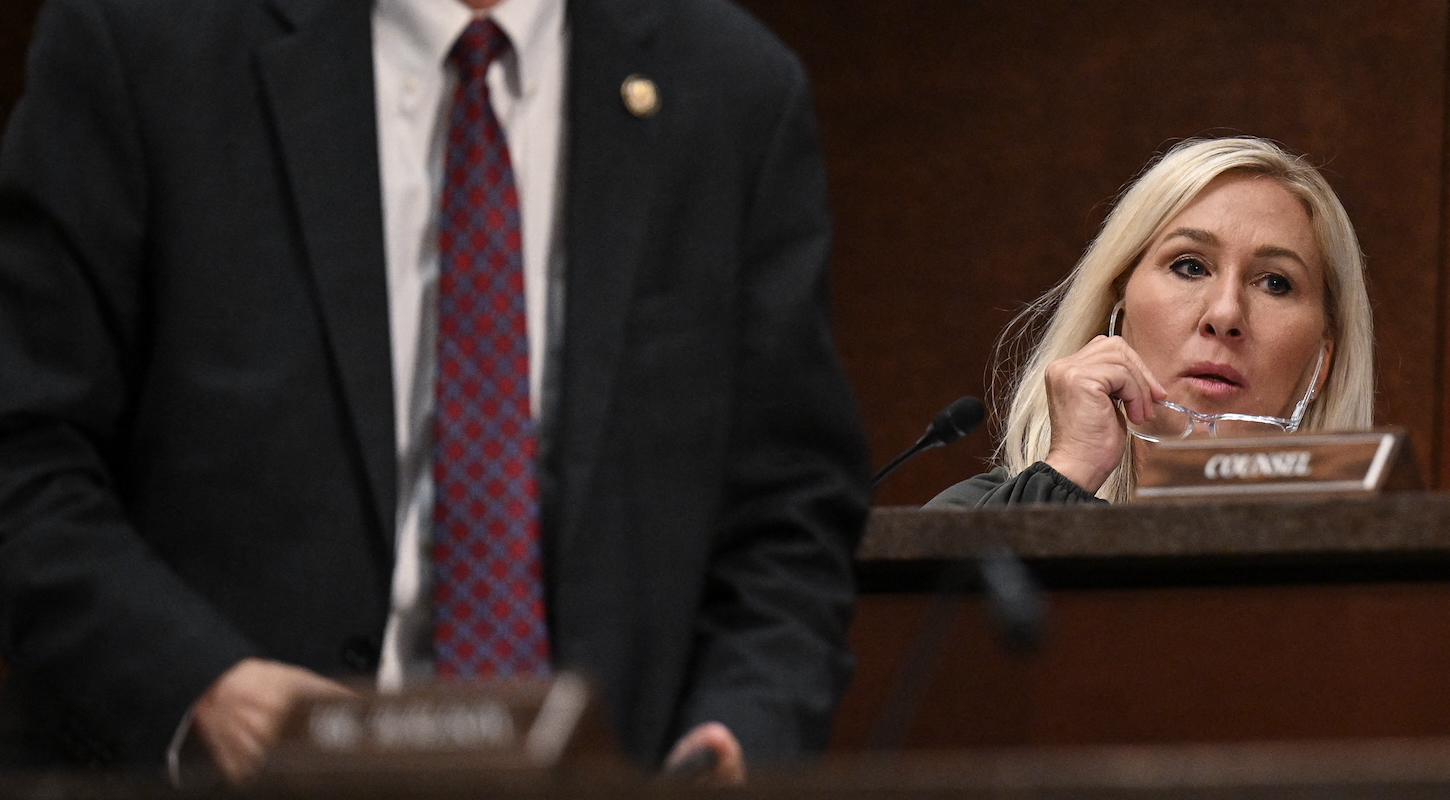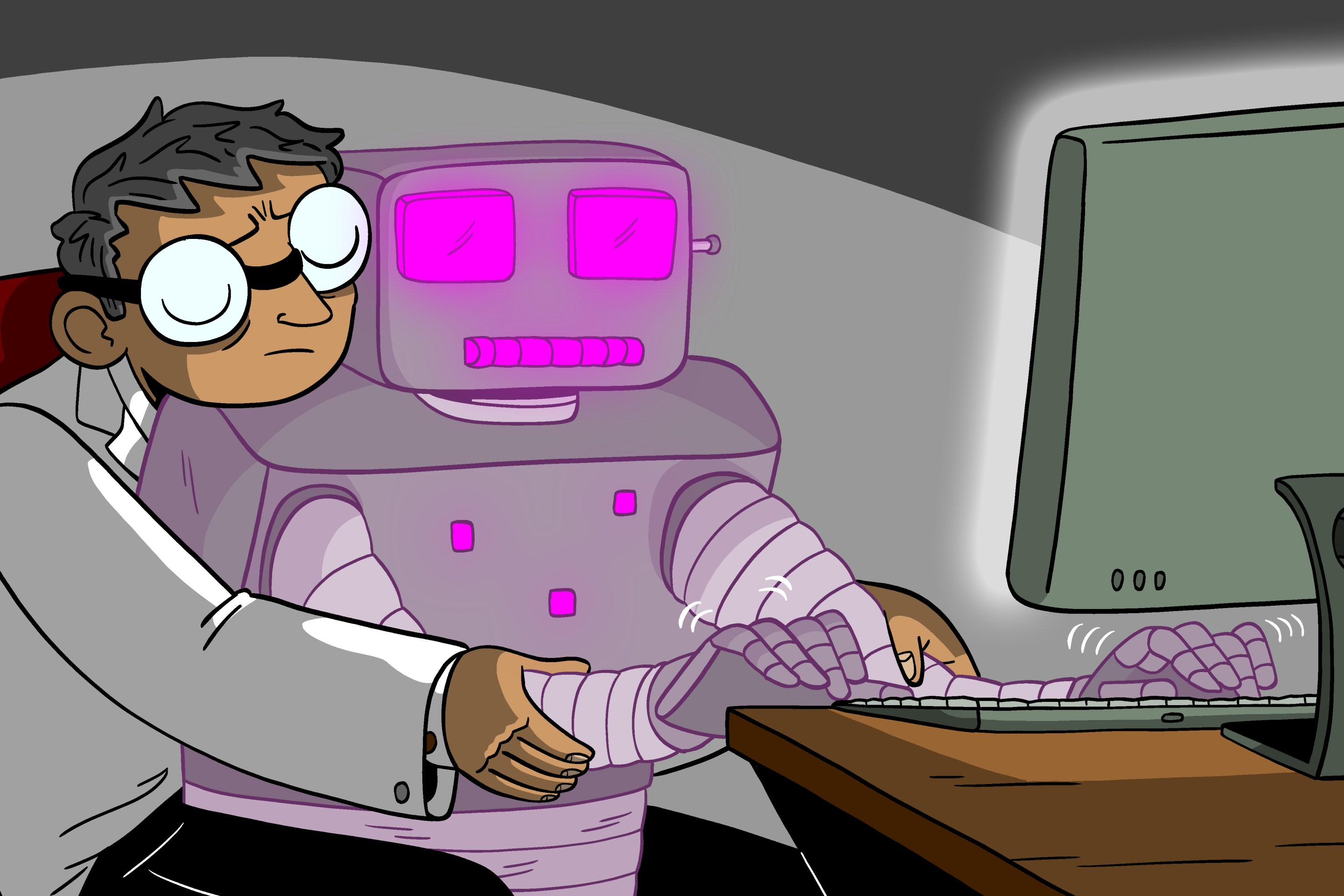On March 26, the official White House Twitter account posted a photo of Vice President JD Vance aiming a military rifle with the caption “Just the Vice President of the United States sending some freedom seeds downrange. Doesn’t get more American than that.” Presumably this image inspired the millions of Americans who love guns and wanted to see a ranking executive shoot them, just as previous administrators inspired Americans who love golf (W. Bush), jogging (Clinton), and coercive sex (Clinton).
“Freedom seeds,” though, caused at least one American to shrivel up inside. I would call it a euphemism, but a euphemism is supposed to sound better than what it replaces. “Freedom seeds” manages to sound both dumb and effortful at the same time, committing the cardinal sin of written communication by calling attention to the writer’s “cleverness”—here I am making scare quotes so hard that the dog has run out of the room—at the expense of clarity. Readers can understand what the White House is trying to say, but we have to waste a second to supply the shorter and more familiar word “bullets.”
And what do we get for our efforts? While it is true that a bullet is like a seed, insofar as it is a small rounded thing that can be buried in other things, bullets do not grow into or otherwise propagate freedom. Putting a bullet in someone consistently reduces their freedom, and sending a bunch of guys to shoot or threaten to shoot bullets is maybe the number-one way to curtail other people’s freedom in the modern world. Whatever the word “freedom” refers to in “freedom seeds,” it does not refer to the power to act, speak, or think without hindrance or restraint. What we have here is a new usage that offends normal people’s sense of the word, even as it threatens to supplant the original, to the point that American English no longer has a word for freedom.
Obviously, the word “freedom” still exists. You can see it right there in “freedom seeds,” which narrowly alludes to the right to bear arms under the Second Amendment but more broadly refers to U.S. military power. It’s a usage that can be traced to Operation Iraqi Freedom, the name given to the 2003 invasion of Iraq, in which “freedom” referred to the project of taking control of another nation by force. This coinage was part of a whole Orwellian project undertaken by members of the Republican Party in the years after Sept. 11, 2001, when American flags and the word “freedom” first expressed solidarity in the wake of a terrorist attack but quickly became signals of support for the Bush administration’s response to same. See also: “freedom fries.”
“Freedom fries”—meant to replace “French fries” after France declined to contribute troops and materiel to the Iraq war—was the kind of idiotically transparent manipulation you might expect from a president whose wealth and parentage had robbed him, in early life, of the need to convince people. It was regarded as a funny blunder at the time. The evident cynicism of this new use of “freedom” turned out to be a feature rather than a bug, however, because it so obviously bent the language to partisan ends that it became a gesture of loyalty to the GOP. In other words, the signaling function overwhelmed the original use case. Under Donald Trump, Republicans have so thoroughly abused this signaling function that it has become impossible to use “freedom” to speak honestly about the shared value of collective autonomy and individual flourishing, the same way it is impossible to speak honestly about a limited-time offer.
You can still say things like “freedom of speech” or “reproductive freedom,” and people will mostly know what you’re talking about. But they must distinguish these uses from, for example, President Trump’s Jan. 20 executive order titled “Restoring Freedom of Speech and Ending Federal Censorship,” which he issued shortly before his administration began detaining foreign students who criticized Israel, or the Alliance Defending Freedom, a nonprofit organization that has filed lawsuits to restrict abortion and prevent trans women from participating in sports. The linguistic term for these usages, which put “freedom” in service to its opposite, is “bullshit.” They join other bullshit usages that are merely orthogonal, such as the “freedom” achieved by lowering taxes on corporations or the sister usage “Liberation Day,” Trump’s name for the across-the-board tariffs he imposed on April 3.
The growing sense that “freedom” is a word you say when you are bullshitting has made it harder to talk about freedom in non-bullshit ways. The 2016 documentary Hypernormalisation describes a similar phenomenon in Russia, where the Putin apparatchik Vladislav Surkov used Kremlin money to fund fake opposition parties—not to trick the Russian public but to make them assume that real opposition groups were Kremlin-funded, too. Bad money drives out good. If “freedom” is just another word for taxing imports and letting church people tell you which bathroom to use, then freedom as a shared goal of autonomy and flourishing starts to sound like bullshit, too.
This problem is not confined to language. In the time that the dominant usage of “freedom” has shifted, we have steadily lost the thing to which it once referred. For example, the Republican freedom agenda has cut funding for education, frozen the minimum wage and reduced taxes on capital gains and high income brackets, increasing the share of wealth controlled by landlords and, by extension, the hours Americans spend doing work they don’t like in order to sleep indoors. This change amounts to a meaningful loss of freedom: the freedom to write poems, to exercise, to hang out with friends or go to the movies or do anything else that does not make money. The upward transfer of economic freedom has narrowed the scope of possibility of American life in ways that become apparent when you compare the mathematics of artistic ambition in the 21st century to conditions faced by earlier generations. In 1961, a young Bob Dylan rented an apartment in the West Village for $60 a month, a price that allowed him to devote more time to music and less time to meeting his material needs. Few New Yorkers who work for wages are so free today.
The political agenda that calls itself freedom has expanded our rights in certain ways: We are free to drive cars and trucks that get lower gas mileage, free to own semiautomatic rifles, and free to say slurs on the internet. But these examples call attention to a difference between liberty and freedom that is elided by the new, partisan usage of the word. The cynical “freedom” agenda promises liberty from our obligations to others, but this liberty is a trap.
Liberty is the absence of constraint, a condition that sounds good at first but often also means the absence of possibility. Thomas Hobbes made this point with his hypothetical state of nature, the lawless world that maximizes the individual’s liberty to, say, bash his neighbor over the head with a rock. People operating in this state are more at liberty than anyone alive today, in that no government prevents them from doing whatever. At the same time, the range of possibility in their lives is radically limited. They cannot travel, because if they leave their home someone else will be living there when they get back. They cannot learn to read, because the school keeps getting raided and they have to scan the horizon every few seconds anyway. Unconstrained by law or obligation, they cannot do much of anything but look for food and other people to exploit. The social contract theory Hobbes and his contemporaries developed is based on the idea that people give up such primitive liberty to make more complex freedoms possible.
Seen from this perspective, freedom and liberty are not synonyms but mutually exclusive demands. In the 21st century, the dwindling percentage of Americans whose wealth and power afford them historically unprecedented freedom are asking the rest of us to trade our remaining freedom for certain liberties: less leisure time but more guns, fewer opportunities to educate our children but more opportunities to decide their vaccination schedules, lower chances to see a whale but higher chances to drink from a plastic straw. There are conversations to be had about whether we want to take these deals, but we need the words to talk about it.






